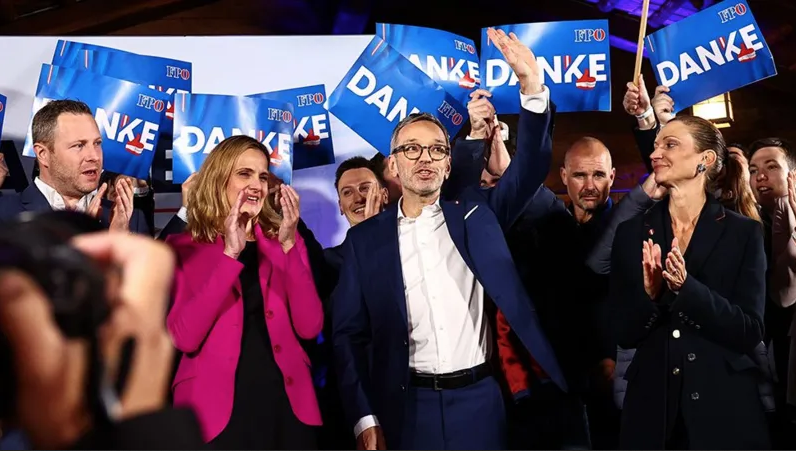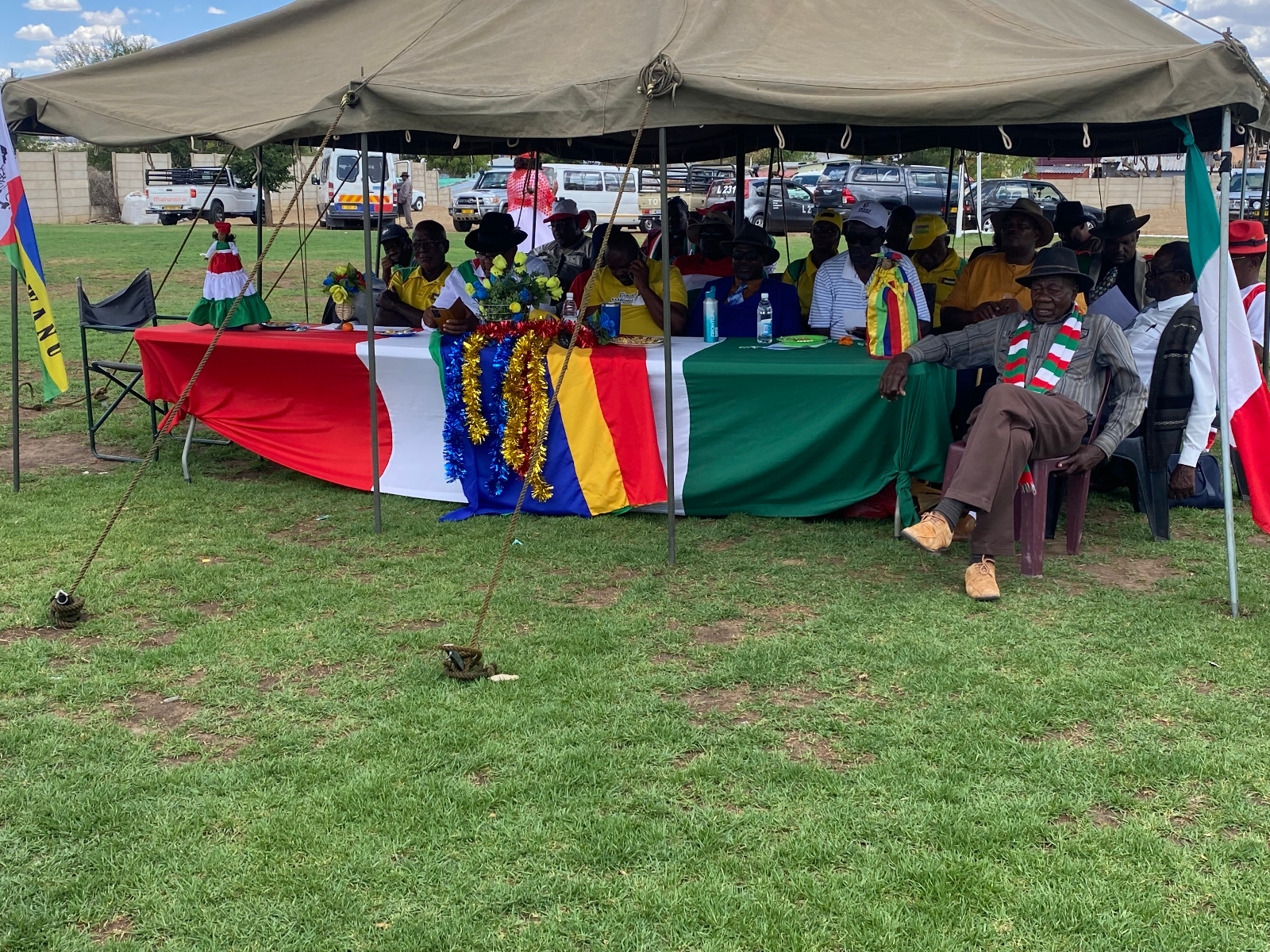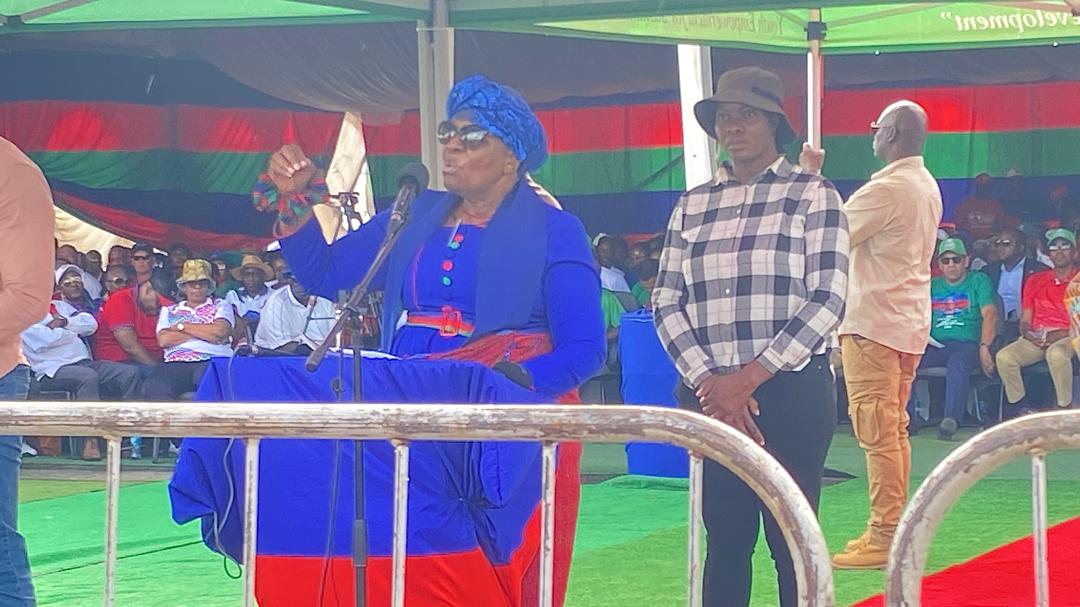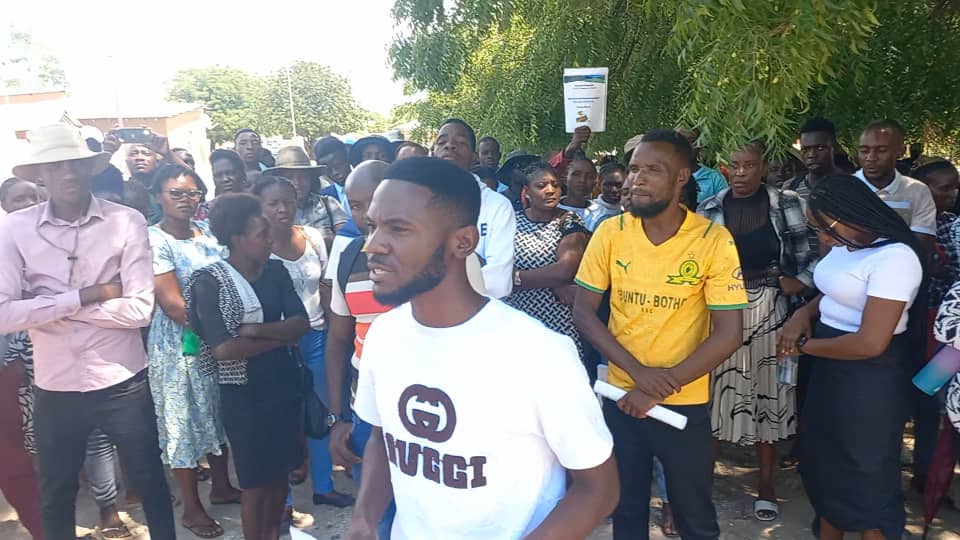Austria’s far-right Freedom Party (FPÖ) has opened the door to a new era, its leader Herbert Kickl has told supporters, as they celebrated an unprecedented election victory.
Kickl’s party won 29.2% of the vote according to provisional results – almost three points ahead of the conservative People’s Party (ÖVP) on 26.5%, but far short of a majority.
Kickl’s victory is only the latest in a string of far-right election successes in Europe and he praised voters for their “optimism, courage and trust” in delivering a “piece of history”.
The FPÖ has been in coalition before, but the second-placed ÖVP has refused to take part in a government led by Kickl.
Kickl’s main rival, incumbent Chancellor Karl Nehammer of the ÖVP, has said it’s “impossible to form a government with someone who adores conspiracy theories”.
There was a high turnout of 74.9% as Austrian voters took part in an election dominated by the twin issues of migration and asylum, as well as a flagging economy and the war in Ukraine.
As half the map of Austria turned dark blue, FPÖ general secretary Michael Schnedlitz said “the men and women of Austria have made history today”, although he refused to say what kind of coalition his party would try to build.
Postal votes were still being counted on Monday morning, but an analysis of voters suggested those aged 35-59 were most likely to back the far right, and marginally more women than men.
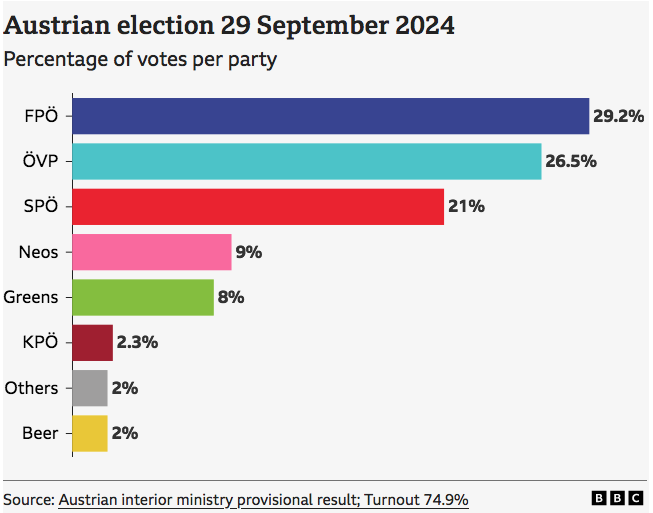
Kickl’s party has won 58 seats in the 183-seat parliament, with the conservatives on 52 and the Social Democrats on 41.
The Freedom Party’s fiery leader had promised Austrians to build “Fortress Austria”, to restore their security, prosperity and peace, and he has aligned himself closely with Viktor Orban in neighbouring Hungary.
Social Democrat leader Andreas Babler warned that Austria must not go the same way as Hungary.
Kickl had also spoken of becoming Volkskanzler (people’s chancellor) which for some Austrians carries echoes of the term used to describe Adolf Hitler in Nazi Germany.
The party was founded by former Nazis in the 1950s. Two days before the vote some of its candidates were caught on video singing an SS song at a funeral.
As the FPÖ’s victory became clear, a small group of protesters appeared outside parliament carrying anti-Nazi banners.
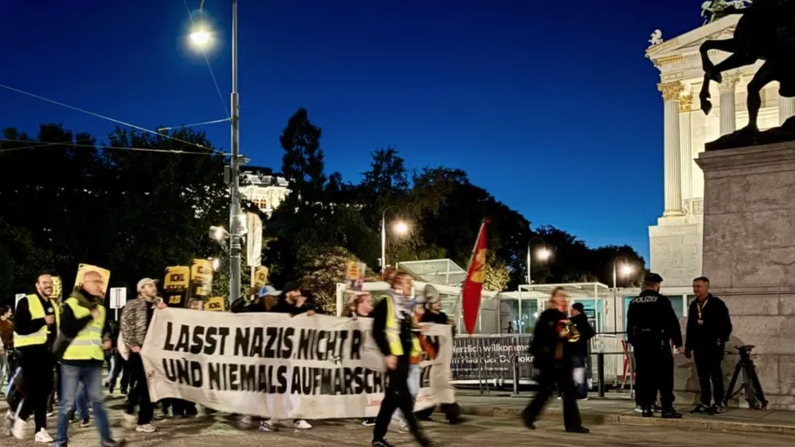
Forming a coalition is likely to prove complicated for Kickl, who is a divisive figure.
The Social Democrats, Greens and Neos have all ruled out a partnership with the far right.
The only possible coalition Kickl’s party could form is with the conservatives, although the FPÖ would have to find a solution to the ÖVP’s refusal to have Kickl as chancellor.
When Geert Wilders’ Freedom Party won the Netherlands’ election last November, he dropped his bid to become prime minister so that three other parties would agree to form a coalition. However, Kickl is keen to lead his country, promising Austrians to act as their “servant and protector”.
Political analyst Thomas Hofer told the BBC it was by no means clear that Austrian President Alexander Van der Bellen, who oversees the formation of government, would give Kickl a “direct mandate to form a coalition”.
The ÖVP could in theory scrape together a coalition with the Social Democrats if the latest projections are correct, and could attract the liberal Neos party or the Greens.
Equally, Karl Nehammer may come under pressure from within the ÖVP to drop his objection. One leading FPÖ figure said after such a historic defeat he should resign, although that was rejected by the general secretary of Nehammer’s party.
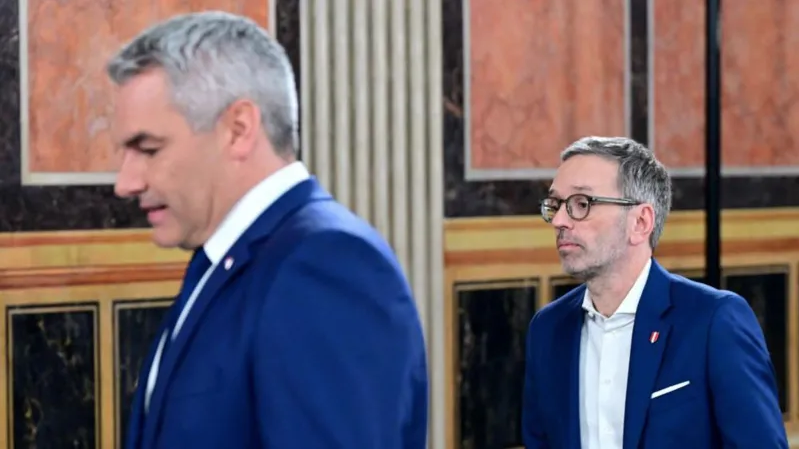
President Van der Bellen has voiced reservations in the past about the FPÖ because of its criticism of the EU and its failure to condemn Russia’s invasion of Ukraine. The party opposes EU sanctions on Moscow, citing Austria’s neutrality, and many of its MPs walked out of a speech to the parliament in Vienna last year by Ukraine’s Volodymyr Zelensky.
Kickl’s victory is the latest in almost a year of vote successes for radical right-wing parties in Europe.
Italy’s Giorgia Meloni heads a right-wing coalition as leader of the far-right Brothers of Italy party and Germany’s AfD topped the polls in the eastern state of Thuringia last month. France’s National Rally won the vote in European elections last June.
Unlike Kickl, Italy’s prime minister has given her full backing to the EU’s defence of Ukraine in the face of Russia’s full-scale invasion.
AfD co-leader Alice Weidel congratulated Kickl, posting a picture of the two together, and Marine le Pen of the National Rally said “this groundswell carrying the defence of national interests”, after the votes elsewhere in Europe, confirmed the “people’s triumphs everywhere”.
Geert Wilders said times were changing, and that “identity, sovereignty, freedom and no more illegal immigration/asylum” was what millions of Europeans were longing for.
Kickl has tapped into fears about immigration in Austria and he has made the most of anger at the government’s handling of the Covid pandemic, embracing conspiracy theories about obscure treatments for the virus.
For Kickl and his party, Sunday’s election victory represents a significant recovery from 2019, when they came a distant third in the wake of a video sting scandal that engulfed their former leader.
Stay informed with The Namibian – your source for credible journalism. Get in-depth reporting and opinions for
only N$85 a month. Invest in journalism, invest in democracy –
Subscribe Now!


